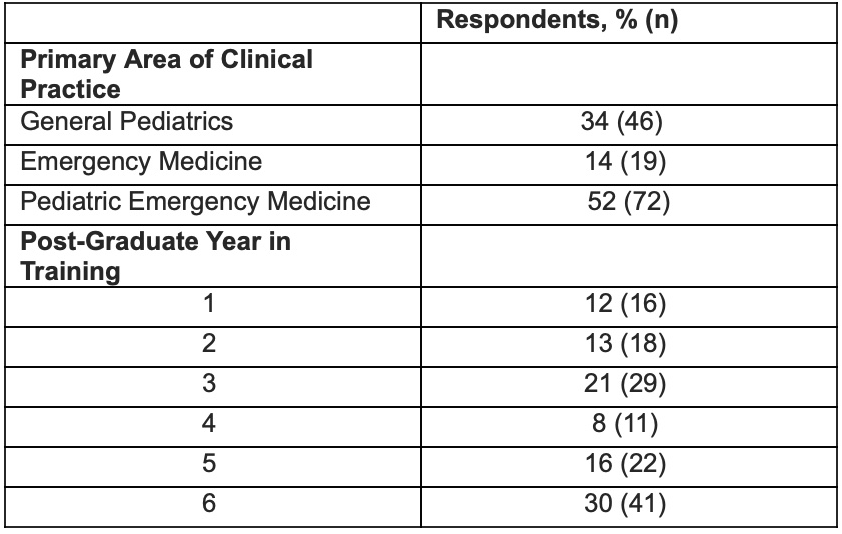Medical Education
Session: Medical Education 7
447 - Unintentional Cannabis Toxicity: A Nationwide Needs Assessment for Providers Caring for Pediatric Patients
Saturday, May 4, 2024
3:30 PM - 6:00 PM ET
Poster Number: 447
Publication Number: 447.1344
Publication Number: 447.1344

Alexandra Van Oyen, DO (she/her/hers)
Pediatric Emergency Medicine Fellow
New York University Grossman School of Medicine
Brooklyn, New York, United States
Presenting Author(s)
Background: The expanding legalization and accessibility of edible cannabis has resulted in an increase in unintentional cannabis ingestions in children. Providers who care for pediatric patients are at the forefront of this public health dilemma.
Objective: We sought to characterize pediatric trainees’ perceived educational needs for recognition, management and counseling caregivers of children with acute cannabis exposures and toxicity.
Design/Methods: Trainees in Pediatrics, Emergency Medicine (EM), and Pediatric Emergency Medicine (PEM) were asked to complete an electronic survey distributed via national email listservs. Responses were included for only completed surveys. Trainees rated their previous education, experience, and comfort regarding: 1. recognition of acute cannabis toxicity; 2. management of acute cannabis toxicity; and 3. counseling caregivers. Demographic data including specialty and post-graduate year were collected.
The data were collected between July and October 2023. Participation in the study was voluntary. The study was determined to be exempt by the local institutional review board with a waiver of consent.
Likert responses were translated into ordinal numbers (4=Strongly agree, 3=Somewhat agree, 2=Somewhat disagree, 1=Strongly disagree). Means and standard deviations were reported. Data were summarized using descriptive statistics. Differences in mean response between Pediatric and EM trainees (EM and PEM) were compared using Independent Samples t-test. We considered P < 0.05 to be statistically significant.
Results: 137 residents and fellows from 25 states participated. 91 of the respondents were EM trainees and 46 were Pediatric residents.
78.2% (36/46) of pediatric residents disagreed that they previously received education on recognition of cannabis toxicity. 60.8% (28/46) of pediatric residents disagreed that they feel comfortable recognizing cannabis toxicity, whereas 71.4% (65/91) of EM trained providers agreed to feeling comfortable. 63% of pediatric residents disagreed to feeling comfortable managing patients with cannabis toxicity, in contrast to 73.6% (67/91) of EM trained providers who agreed to feeling comfortable. The majority of both groups disagreed with feeling comfortable providing caregiver counseling, 81.3% (74/91) of EM trainees and 71.7% (33/46) of Pediatric residents.
Conclusion(s): Based on survey results, unlike EM and PEM trainees, Pediatric residents do not believe they receive adequate education in acute cannabis toxicity recognition and management. We are amid a public health crisis and our results highlight a strong need for future educational efforts.

.png)
